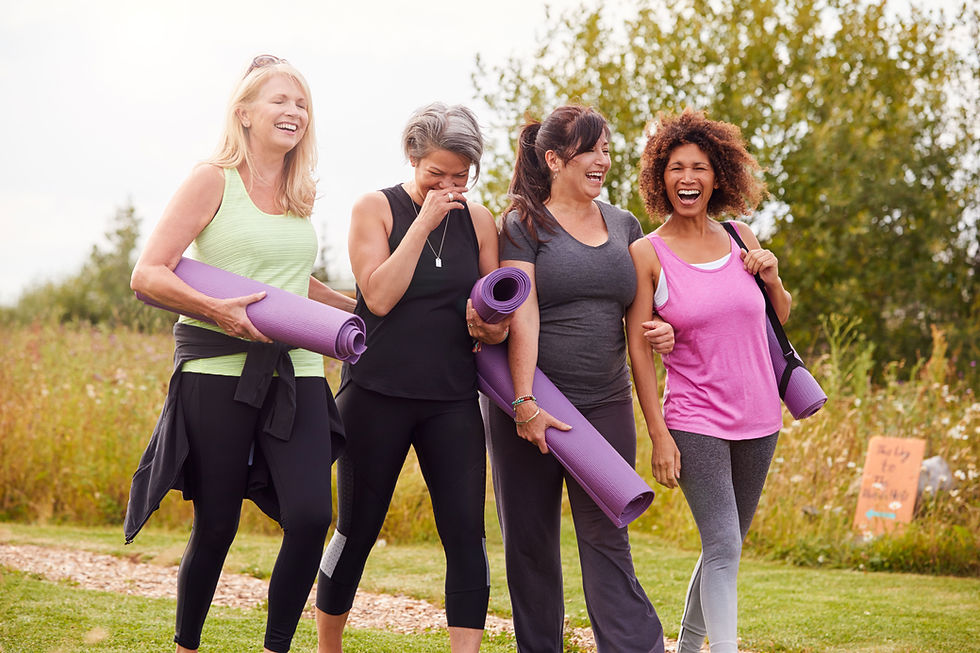
Ladies, let’s talk about something that often gets overlooked but affects every single one of us: our bodies. And no, I’m not talking about whether your leggings are squat-proof (though, very important). I’m talking about women’s health—from the teenage years to post-menopause—and how physiotherapy is the underrated superhero in our wellness journey.
Physiotherapy isn’t just for people recovering from sports injuries or your grandma’s dodgy knee (love you, Nana!). It plays a crucial role in supporting women through different life stages, tackling everything from pelvic health to posture, pain management, and even the occasional embarrassing sneeze-related mishap.
So, let’s dive in and explore how physiotherapy empowers women's health throughout life.
Teenage Years: The Awkward Growth Spurts and Period Pains
Ah, puberty. A time when our bodies go rogue, and we have zero control over it. Physiotherapy can help teenage girls navigate these changes with grace (or at least fewer growing pains).
Posture Correction: Thanks to hours hunched over textbooks or scrolling through TikTok, bad posture starts early. Physiotherapy helps correct those slouchy habits before they become lifelong struggles.
Sports Injuries: Whether it’s netball, gymnastics, or competitive shopping (yes, that counts), physiotherapists help prevent and treat injuries so teens can keep moving.
Menstrual Pain Management: Did you know physios can help with period pain? Techniques like manual therapy and exercise can reduce those dreaded cramps. Because let’s be honest, no one enjoys feeling like a gremlin clutching a hot water bottle.
Young Adulthood: Careers and Mad About Fitness
As we enter our 20s and 30s, we take on the world—or at least try to. Between long hours at work, fitness goals, and maybe the odd wine night (for the antioxidants, of course), our bodies start talking back.
Desk Job Pains: Sitting at a desk all day isn’t ideal for our necks and backs. Physiotherapy helps with workplace ergonomics, posture training, and exercises to avoid the dreaded hunchback look.
Pelvic Floor Health: Ever sneezed and felt a slight betrayal from your bladder? Yep, pelvic floor physiotherapy can help with that, preventing issues like incontinence before they become real problems.
Exercise & Injury Prevention: Whether you’re a weekend warrior or a gym enthusiast, physios help with injury prevention, flexibility, and recovery—so you can keep up with your ambitious fitness goals.
Pregnancy & Postpartum: The Ultimate Body Transformation
Growing a human is no joke. Your body goes through more changes in nine months than your phone’s software updates in a year. Physiotherapy is a game-changer during and after pregnancy.
Pregnancy Support: From back pain to pelvic discomfort, physios help keep moms-to-be as comfortable as possible while their tiny tenant takes up more and more space.
Labour Prep: Physiotherapists can teach techniques to strengthen the pelvic floor and prepare the body for childbirth, making the process a bit easier (no guarantees, though—we’re not magicians).
Postpartum Recovery: After delivery, your body deserves some serious TLC. Physiotherapy helps with C-section recovery, diastasis recti (ab separation), and regaining core strength so you can carry that car seat without feeling like you just did a CrossFit workout.
Midlife: Juggling Life, Family, and an Aching Back
Between careers, kids, and trying to squeeze in some me-time, women in their 40s and 50s often put their health last. But guess what? Your body will remind you (usually in the form of back pain at 3 AM).
Chronic Pain Management: Whether it’s back pain, joint stiffness, or that weird shoulder ache that appeared out of nowhere, physiotherapy can help manage and reduce chronic pain.
Hormonal Changes & Bone Health: With menopause comes a decline in estrogen, which can lead to osteoporosis. Strength training and weight-bearing exercises prescribed by a physiotherapist help keep bones strong and prevent fractures.
Pelvic Floor Tune-ups: Yes, we’re talking about the pelvic floor again. Because bladder control is something we don’t appreciate until it starts misbehaving. Regular check-ins with a physiotherapist can help keep things in check.
Golden Years: Staying Active & Independent
Just because you’re collecting discounts doesn’t mean you’re slowing down! Staying mobile and independent is key in your 60s and beyond, and physiotherapy is here to help.
Fall Prevention: No one wants to take an unexpected tumble. Physiotherapists work on balance, strength, and coordination to keep you steady on your feet.
Arthritis & Joint Care: Managing joint pain and stiffness is crucial for staying active and enjoying life.
Maintaining Mobility: Whether it’s walking, gardening, or dancing at your grandchild's wedding, physiotherapy helps you keep moving with confidence.
Final Thoughts: Physiotherapy empowering women's health throughout life.
Physiotherapy isn’t just about fixing problems—it’s about preventing them and ensuring that women of all ages live their best, most active lives.
Whether you’re dealing with growing pains, pregnancy, menopause, or just the wear and tear of life, a physiotherapist can be your go-to expert for keeping your body strong and pain-free.
So, the next time you feel that nagging back pain, that post-workout soreness that won’t quit, or you just want to sneeze without fear, book a session with any of our friendly physiotherapists. Your body (and your bladder) will thank you!

Comentários